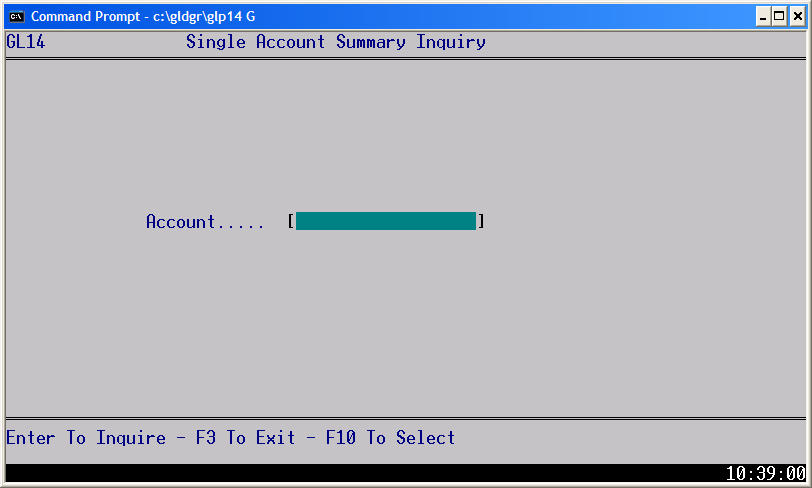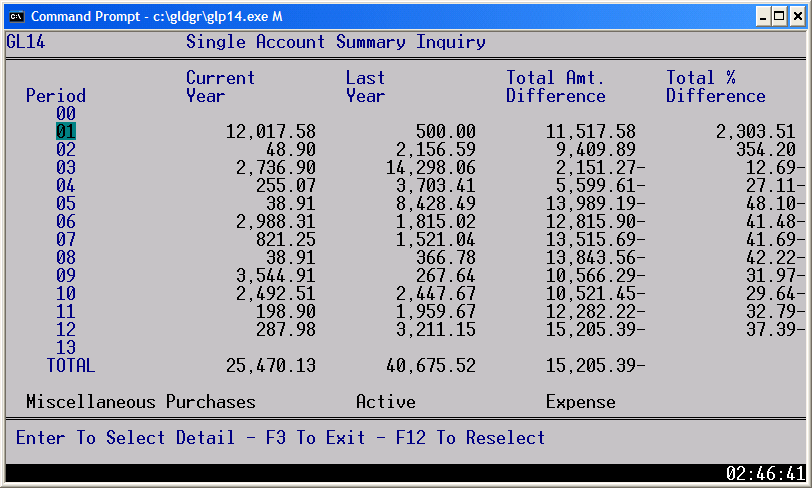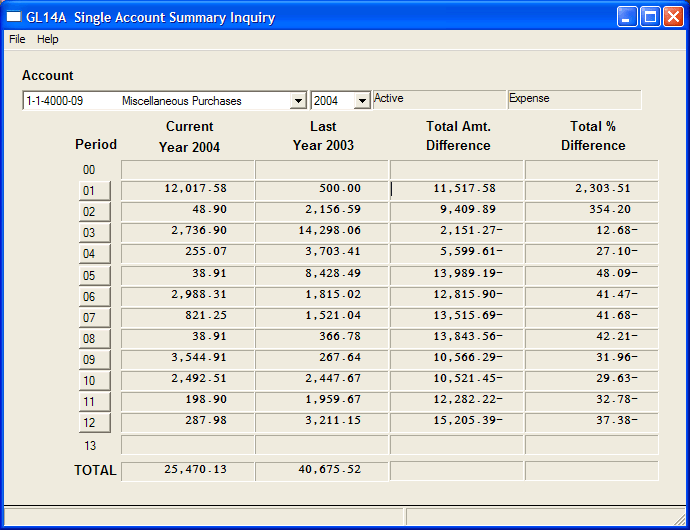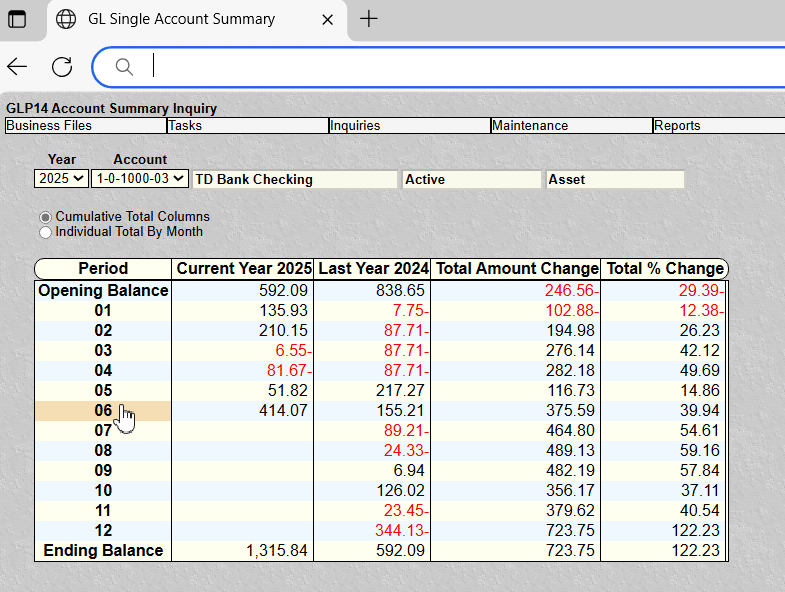
For example, there are many legacy COBOL systems written for DOS. We take your COBOL code and convert your DOS screen panels or Microsoft Windows screens to web based HTML/GUI format. This conversion is to native HTML. There is no emulator. It is 100 percent pure COBOL. The processing logic in the programs are not touched. Only the screen panels and screen IO routines are changed. Typical response times are less than 1 second.
Why
convert ? One reason, DOS and many popular screen handlers (such as screenIO)
are either out of date or no longer supported.
Another reason is these old systems are not as functional and powerful as Web based programs. These old screen
handlers don't support the new controls such as checkboxes, radio buttons, listboxes, buttons,
menus, sizing, and many other controls. Or lack support for new platforms such as android systems or smart phones.
With a Web based system, all you need is a browser.
Below is a before and after example.




Notice that in
the examples above the old DOS program had a lot of keyboard interaction, period
selection with arrows, function keys. The new program requires no keyboard
whatsoever, only mouse (or touch) clicks. It eliminates a 2 screen process by
utilizing drop down list boxes for account selection and year selection. It also utilizes menus, help, standardized
message and title bars, and resizing. It can also use standardized fonts and
graphics to clean the screen up for readability.
Is it cost effective ? Yes for many reasons. Our conversion prevents costly rewrites of a system to a new language. There is no change to the COBOL logic that has been in place and debugged for many years. We do the conversion offsite. There is no office space, computer facilities, housing, or meal expense. We are experienced at these conversions. There is no learning curve expense. Our conversion would not run 25% of the rewrite expense.
How do we start this conversion ? Typically, new customers want to ease into this process rather than authorize a full conversion. The following steps define the usual sequence of events.
- One program from a system is selected for conversion. This is usually a fairly simple screen program. Such as maintenance program.
- Documentation and source code is sent to us. We quote a fixed price to convert this program.
- If accepted, we convert and send the program back to you for evaluation.
- After your evaluation and desire to continue, we work on a price quote for the entire system conversion.
How is the conversion priced ? We like to quote a fixed price because we understand budgets. However, sometimes with systems that have poor documentation or poorly written COBOL code we charge by the hour. A technical example of this would be COBOL code that has multiple "Display" statements for error messages rather than having one routine to display error messages.
Are there any considerations after the conversion ? Yes, with Web based system there are many functions and facilities that were not available to the old system. Such as popup windows, distribution by web address, or support for multiple hardware platforms (smart phones, apple, adroid). Since this wasn't in the old system it won't be there after the conversion. You might want a review of the old system to see what useful new features can be added now that it is a Microsoft Windows applicaton.